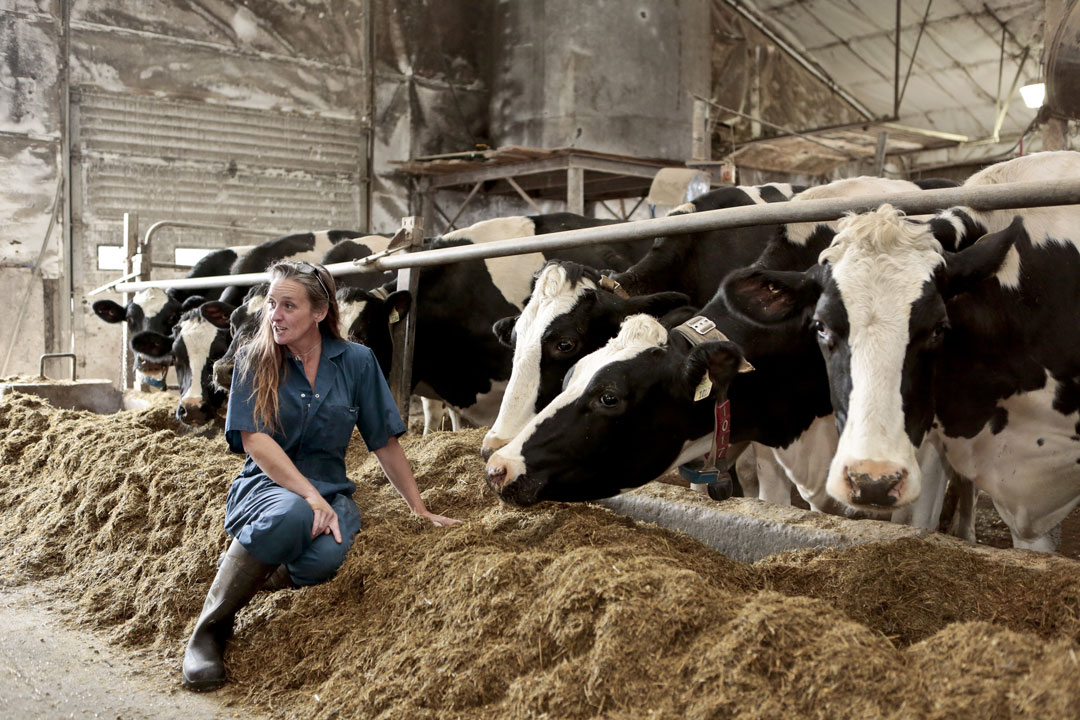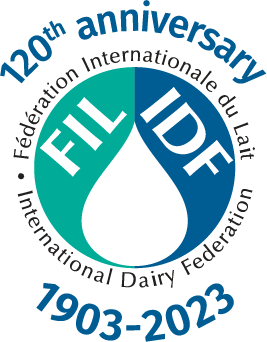Share this page
Continuous improvement with the dairy sector
The DSF recognizes that sustainability is a journey and not a destination!

Alignment with SDGs
AUTHOR
Brian Lindsay Dairy Sustainability Framework
Abstract
The Dairy Sustainability Framework (DSF) was developed by the global dairy sector and launched in October 2013. The purpose of this pre-competitive and collaborative initiative is to quantify and publicly report the continuous sustainability performance of the dairy sector.
DSF membership, who have committed to actively implement sustainability programs and quantifying their progress, currently accounts for more than 30% of global milk production. Membership continues to grow from both developed and emerging dairy economies.
DSF aligns the global dairy sector under 11 key sustainability criteria, covering the three pillars of sustainability – environmental, social and economic. An integral part of alignment is the facilitation of member engagement. DSF encourages and establishes platforms for members to share their sustainability challenges, opportunities and successes with their fellow members. The result is that sustainability progress is accelerated.
Importance of Reporting
The dairy sector recognizes that stakeholders have a keen interest in the sustainability credentials of the dairy sector. DSF has been developed as the reporting framework for the global dairy sector to share sustainability priorities and mitigation/improvement initiatives, and importantly, the quantified progress that is being achieved by these initiatives.
Dairy production is diverse. The range of material sustainability issues in different regions and the degree of advancement of different regional dairy industries are why the DSF is a Framework and not a certification scheme or standard. DSF is an umbrella mechanism the global dairy sector uses to track and report performance in producing food responsibly and in an increasingly sustainable way.
The 11 DSF indicators have also been mapped to the UN Sustainable Development Goals (SDG’s), providing the sector with knowledge about how its actions contribute to delivering the SDG’s. The dairy sector has an immense opportunity to contribute towards the delivery of the SDG’s, and DSF provides the framework to measure that progress.
DSF Mission
A vibrant sector committed to continuously improving its ability to provide safe and nutritious products from healthy cattle, while:
- Preserving natural resources
- Ensuring decent livelihoods across the industry
Governance
DSF is led by the dairy sector. Both international and regional dairy associations provide Governance with geographic coverage to ensure appropriate decisions are made for all dairy regions. The World Farmers Organization is also represented in DSF Governance.
The DSF Governance body is Chaired by Global Dairy Platform, a not-for-profit industry association representing the global sector.
Multi-Stakeholder Advisory Council
DSF Governance has also established a multi-stakeholder Advisory Council, which includes:
- International Livestock Research Institute
- OXFAM
- Rabobank
- ASDA Stores
- American Humane
- FAO
- Solidaridad International
- World Bank
- Global Round Table for Sustainable Beef
- Global Forum on Agricultural Research
The role of the DSF Advisory Council is to advise and challenge DSF leadership regarding strategy and progress. The DSF Advisory Council were integral to the development of the DSF Indicator metrics.
To ensure a direct link to DSF Governance and the dairy sector’s science-based organization, the DSF Advisory Council is chaired by the International Dairy Federation President, who is also a DSF Governor.
DSF has been developed as the reporting framework for the global dairy sector to share sustainability priorities and mitigation/improvement initiatives, and importantly, the quantified progress that is being achieved by these initiatives
Brian Lindsay Tweet
Global and Aggregated Reporting
The campaign and landing page for information on meal sites became a valued resource for California school districts and communities, supporting 528,797 website visits, including 467,823 unique views. Approximately 40% of viewers sought information in Spanish. This effort to ensure students with the greatest need received healthy meals that include milk and dairy was effective because of the collaborative, innovative efforts of individuals and organizations. Perhaps in part due to efforts such as this, participation in the National School Lunch Program in 2020 declined less in the state of California than the national average.
Shifting to remote education models enabled teachers to continue instructing children and families on healthy eating patterns that include nutritious, high-quality foods. The collaborative effort with educators to adapt resources for online learning and continue teaching nutrition despite the challenge of not meeting in person enabled 4.4 million California students and families to engage with Let’s Eat Healthy nutrition resources during the 2020–2021 school year. Over 225,000 students, families, and classrooms engaged with dairy farmers and agriculture instructors through a livestream viewing from the farm.
Discussion
The dairy sector is committed to understanding their current sustainability performance and the actions they can implement to continually improve.
Over the last three years, DSF has invested considerable time and finances in developing appropriate high-level Indicator Metrics to publicly report the sector’s aggregate progress and inform DSF membership of the results.
Using a science-based approach implemented by the University of Arkansas, DSF members (through a consultative process, which included a period of public consultation) agreed on the metrics that will be implemented in their own local improvement programs. This permits the DSF to aggregate data and provide an annual report on progress.
DSF members have also provided the necessary data to enable a baseline for each of the metrics to be established. Starting in 2020, DSF will be reporting progress from all 11-indicator metrics against the established baselines.
DSF is not only producing Indicator Metrics to inform the sector of opportunities and progress. In December 2018, DSF conducted a side event at the United Nations COP24 Climate Change Conference to launch an important report undertaken by the Food and Agriculture Organization (FAO) of the United Nations titled, “Climate Change and the Global Dairy Cattle Sector.” This report and the summary factsheet demonstrated that dairy sector emissions on an intensity basis globally have reduced by 11% over the 10-year period, 2005 – 2015. Reports such as this are encouraging and highlight areas for continued improvement which the DSF ensures are shared with the membership.
Engagement
DSF recognizes that it cannot achieve its ambitions alone and collaboration is key. Linking with organizations such as the Global Agenda for Sustainable Livestock, FAO, Global Research Alliance on Agricultural Greenhouse Gases, Dairy Asia and of course our individual Advisory Council member organizations is fundamental to achieving success. DSF values collaborative opportunities and is always seeking others to achieve mutual desired outcomes.
For further information
access the DSF website or contact the DSF Secretariat.






